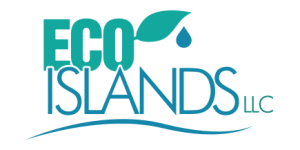Since 2010, Altoona’s EcoIslands has been building and installing wetlands-in-a-box to remove metals and other pollutants from water. Made of recycled plastic and coconut fiber, the modular units promote the growth of large volumes of microbial biofilm that naturally pull contaminants from rivers and streams. The company, which has received funding from Ben Franklin Technology Partners of Central & Northern Pennsylvania, is led by founder and CEO Colin A. Lennox. Keystone Edge chatted with him about EcoIslands’ future.
What is your big idea?
EcoIslands LLC designs, constructs, monitors and maintains bioreactors that clean water pollution through natural wetland processes. Think “wetlands in a box” that adapt and change naturally to the changing conditions as the water gets progressively cleaner. This process is called natural attenuation, and our Metal Removal Units (MRUs) are the first [product] to effectively harness this force of nature.
What is EcoIslands’ origin tale?
From landscaping to farming to consulting to shoveling snow in the winter for cold cash, the members of EcoIslands have done what we need to do to fund our research and refine our technology. Our mission is to build sustainable, modular wetland technologies to treat almost any kind of water pollution.
How did you develop your technology?
Trial and error mostly, followed by lots of reading and head scratching. We’ve built 30-plus generations of MRUs, from our earliest on-site pilot-scale MRU to our newest Mrk3 MRU, which is the synthesis of six years of the rigorous application of the scientific method and upscaling.
What is ahead for EcoIslands?
We are adapting our technology to many different pollutants and expanding into agriculture for nutrient and water recycling. There is a lot more on the horizon, but we can’t talk about that just yet.
The technologies and applications we are developing are ultimately intended for use in the Department of Defense, NASA and space exploration, USAID, FEMA and sustainable agriculture. If it weren’t for pollution and the need to adapt and overcome through the scientific method, we might not have the opportunity to understand the need for wetlands in combat and nation stabilization; sustainable community and economic development; and outer space.
Why does the marketplace need EcoIslands?
The need for water is ubiquitous. No industry or economy can exist without clean, plentiful water. Any reduction in the cost of providing fresh water through advanced ecological technologies reduces the cost of any and all related enterprise.





